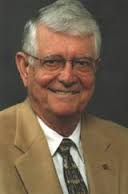 Jim Stice spent the majority of his career in engineering education, teaching past, current, and future academicians the art of teaching. He first explored his interest in engineering education as Assistant Professor at the University of Arkansas, and then moved to the University of Texas at Austin (UT-Austin) at the invitation of Dean John McKetta. At the beginning of his tenure at UT-Austin, Dr. Stice created and directed the Bureau of Engineering Teaching, believed to be the first engineering teaching and learning center. It was through this center that he created the first course on college teaching for engineering students. He was then asked to found and direct one of the nation’s first university-wide centers for teaching effectiveness at UT-Austin. This center offered many high-impact faculty professional development workshops. He then took the local faculty professional development activities to the national level through the National Effective Teaching Institute, which he co-founded with Richard Felder. He returned to teaching full-time in the Department of Chemical Engineering at UT-Austin before retiring in 1996.
Jim Stice spent the majority of his career in engineering education, teaching past, current, and future academicians the art of teaching. He first explored his interest in engineering education as Assistant Professor at the University of Arkansas, and then moved to the University of Texas at Austin (UT-Austin) at the invitation of Dean John McKetta. At the beginning of his tenure at UT-Austin, Dr. Stice created and directed the Bureau of Engineering Teaching, believed to be the first engineering teaching and learning center. It was through this center that he created the first course on college teaching for engineering students. He was then asked to found and direct one of the nation’s first university-wide centers for teaching effectiveness at UT-Austin. This center offered many high-impact faculty professional development workshops. He then took the local faculty professional development activities to the national level through the National Effective Teaching Institute, which he co-founded with Richard Felder. He returned to teaching full-time in the Department of Chemical Engineering at UT-Austin before retiring in 1996.
This profile was authored by Gurlovleen Kaur Rathore, Texas A&M University, based on her interview with Dr. Stice in 2014. The phrase “a teacher’s teacher” in the profile title is borrowed from Richard Felder‘s 2009 “Random Thoughts” column about Dr. Stice. Continue reading Jim Stice: A teacher’s teacher in engineering education

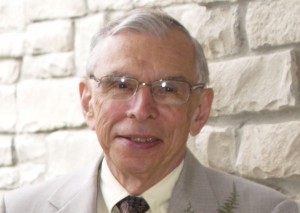 John Lindenlaub was a professor at Purdue University for over 35 years. John fell in love with teaching during his master’s program at MIT, and his commitment to teaching only increased throughout his career. His research on adapting technology for education was ground breaking and has been adopted by many educators since then. He was very involved with the IEEE Education Society and the ASEE Educational Research and Methods division, and he was on the steering committee of the first Frontiers in Education conference. He continues to be involved with engineering education and community service projects through his affiliation with the EPICS program at Purdue.
John Lindenlaub was a professor at Purdue University for over 35 years. John fell in love with teaching during his master’s program at MIT, and his commitment to teaching only increased throughout his career. His research on adapting technology for education was ground breaking and has been adopted by many educators since then. He was very involved with the IEEE Education Society and the ASEE Educational Research and Methods division, and he was on the steering committee of the first Frontiers in Education conference. He continues to be involved with engineering education and community service projects through his affiliation with the EPICS program at Purdue.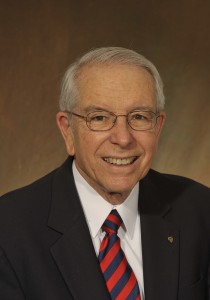 John Prados has worked at the University of Tennessee for almost 60 years, beginning as a graduate assistant in 1956. He has held various positions throughout his career, including full-time chemical engineering faculty member and department head, Associate Dean of Engineering, and Vice President for Academic Affairs of the statewide University of Tennessee system from 1973 through 1988. From 1994 through 1997, he served as Senior Education Associate in the Engineering Directorate of the National Science Foundation. He has also served as Chair of the Engineering Accreditation Commission, Secretary, and President of ABET and editor of the Journal of Engineering Education.
John Prados has worked at the University of Tennessee for almost 60 years, beginning as a graduate assistant in 1956. He has held various positions throughout his career, including full-time chemical engineering faculty member and department head, Associate Dean of Engineering, and Vice President for Academic Affairs of the statewide University of Tennessee system from 1973 through 1988. From 1994 through 1997, he served as Senior Education Associate in the Engineering Directorate of the National Science Foundation. He has also served as Chair of the Engineering Accreditation Commission, Secretary, and President of ABET and editor of the Journal of Engineering Education.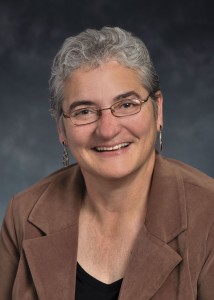 Karan Watson has been at Texas A&M for over 30 years. She is the Provost and Executive Vice President and a Regents Professor in the Department of Electrical and Computer Engineering and in the Department of Computer Science and Engineering. She has also served in a variety of university administrative roles as Vice Provost, Dean of Faculties and Associate Provost, and Vice President and Associate Provost for Diversity. Dr. Watson has also been Associate Dean for Graduate Studies and Associate Dean for Academic Affairs in the Look College of Engineering. She served on the Board of Directors of ABET and served as President of ABET for 2012–13.
Karan Watson has been at Texas A&M for over 30 years. She is the Provost and Executive Vice President and a Regents Professor in the Department of Electrical and Computer Engineering and in the Department of Computer Science and Engineering. She has also served in a variety of university administrative roles as Vice Provost, Dean of Faculties and Associate Provost, and Vice President and Associate Provost for Diversity. Dr. Watson has also been Associate Dean for Graduate Studies and Associate Dean for Academic Affairs in the Look College of Engineering. She served on the Board of Directors of ABET and served as President of ABET for 2012–13.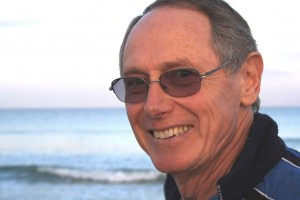 Duncan Fraser was Professor of Chemical Engineering at the University of Cape Town, where he was also a founder and director (2000–2005) of the Centre for Research in Engineering Education. Dr. Fraser was also a founding member of the African Engineering Association (AEEA), and in 2011 was elected Vice President of the International Federation of Engineering Education Societies (IFEES). His research interests focused on improving student learning through curriculum reform and improved teaching practices.
Duncan Fraser was Professor of Chemical Engineering at the University of Cape Town, where he was also a founder and director (2000–2005) of the Centre for Research in Engineering Education. Dr. Fraser was also a founding member of the African Engineering Association (AEEA), and in 2011 was elected Vice President of the International Federation of Engineering Education Societies (IFEES). His research interests focused on improving student learning through curriculum reform and improved teaching practices. 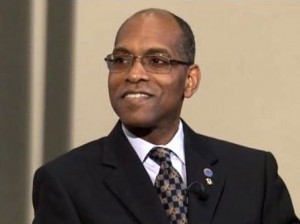 Norman Fortenberry, a longtime leader in education scholarship who has held senior positions at the National Science Foundation and National Academy of Engineering, is currently Executive Director of the American Society for Engineering Education. Throughout his career, he has played an integral role in transforming engineering education practice and research by facilitating productive collaborations among academe, industry, and government. In his endeavor to shape engineering education on a national scale, he keeps in mind the memory that gave rise to his motivation: a need to serve students.
Norman Fortenberry, a longtime leader in education scholarship who has held senior positions at the National Science Foundation and National Academy of Engineering, is currently Executive Director of the American Society for Engineering Education. Throughout his career, he has played an integral role in transforming engineering education practice and research by facilitating productive collaborations among academe, industry, and government. In his endeavor to shape engineering education on a national scale, he keeps in mind the memory that gave rise to his motivation: a need to serve students. 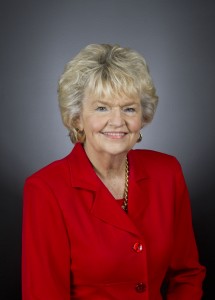 A pioneer, a role model, an inspiration, a survivor. These are just a few of the ways to describe Mary Anderson-Rowland. An educator for nearly fifty years, Dr. Anderson-Rowland has paved the way for many. She began her career teaching Statistics at Arizona State University in 1966. Six years later, she transitioned into the school of engineering, where she served as an Associate Dean of Student Affairs for 11 years. Dr. Anderson-Rowland has received several grants from the National Science Foundation to increase undergraduate enrollment in STEM. She has been honored by organizations including WEPAN, ASEE, SWE, and SHPE for her tireless efforts to broaden the participation of female and underrepresented students in engineering and computer science. Dr. Anderson-Rowland has published nearly 200 publications focused on the recruitment, retention, and mentoring of those students traditionally underrepresented in STEM disciplines, including students who transfer from community colleges. Now an Associate Professor of Computing, Informatics, and Systems Design Engineering at ASU, she is showing no signs of slowing down. She remains committed to making an impact and changing the lives of her students.
A pioneer, a role model, an inspiration, a survivor. These are just a few of the ways to describe Mary Anderson-Rowland. An educator for nearly fifty years, Dr. Anderson-Rowland has paved the way for many. She began her career teaching Statistics at Arizona State University in 1966. Six years later, she transitioned into the school of engineering, where she served as an Associate Dean of Student Affairs for 11 years. Dr. Anderson-Rowland has received several grants from the National Science Foundation to increase undergraduate enrollment in STEM. She has been honored by organizations including WEPAN, ASEE, SWE, and SHPE for her tireless efforts to broaden the participation of female and underrepresented students in engineering and computer science. Dr. Anderson-Rowland has published nearly 200 publications focused on the recruitment, retention, and mentoring of those students traditionally underrepresented in STEM disciplines, including students who transfer from community colleges. Now an Associate Professor of Computing, Informatics, and Systems Design Engineering at ASU, she is showing no signs of slowing down. She remains committed to making an impact and changing the lives of her students.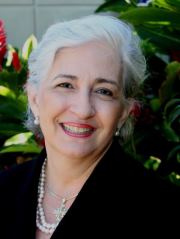 Lueny Morell has had successful careers in both academia and industry. She began her academic work teaching chemical engineering in Puerto Rico, served in the university relations group at HP Labs, and has been involved in multiple engineering education change efforts around the world. Ms. Morell has truly made a lasting impact on engineering education. With extensive knowledge of effective teaching and assessment practices based in real-world engineering problems and an unparalleled passion for quality engineering education, she has earned numerous honors and awards reflecting her influence on the field.
Lueny Morell has had successful careers in both academia and industry. She began her academic work teaching chemical engineering in Puerto Rico, served in the university relations group at HP Labs, and has been involved in multiple engineering education change efforts around the world. Ms. Morell has truly made a lasting impact on engineering education. With extensive knowledge of effective teaching and assessment practices based in real-world engineering problems and an unparalleled passion for quality engineering education, she has earned numerous honors and awards reflecting her influence on the field.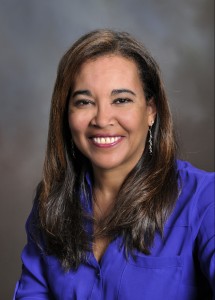 Bevlee Watford has been at Virginia Tech since 1992. Her work has focused on the inclusion and success of underrepresented students pursuing engineering undergraduate degrees and the larger engineering student population at Virginia Tech. As part of this mission, Dr. Watford founded and currently runs the Center for the Enhancement of Engineering Diversity. She has also served as the Program Director for the Broadening Participation in Engineering program at the National Science Foundation.
Bevlee Watford has been at Virginia Tech since 1992. Her work has focused on the inclusion and success of underrepresented students pursuing engineering undergraduate degrees and the larger engineering student population at Virginia Tech. As part of this mission, Dr. Watford founded and currently runs the Center for the Enhancement of Engineering Diversity. She has also served as the Program Director for the Broadening Participation in Engineering program at the National Science Foundation.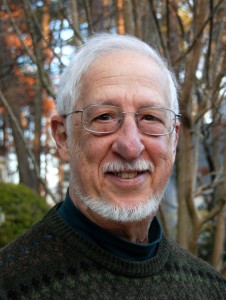 This profile captures the pivotal points in the career trajectory of a conventional chemical engineering professor who left the beaten path to follow his passion for engineering education…and has never looked back. It also includes his opinion on keys to education transformation in engineering education and concludes with advice to graduate students. This profile is written for audiences that range from those considering getting involved with engineering education to those already working in some part of the proverbial “trenches.” Anyone along this spectrum has the potential to benefit from the unconventional experiences of this remarkable pioneer, Dr. Richard Felder.
This profile captures the pivotal points in the career trajectory of a conventional chemical engineering professor who left the beaten path to follow his passion for engineering education…and has never looked back. It also includes his opinion on keys to education transformation in engineering education and concludes with advice to graduate students. This profile is written for audiences that range from those considering getting involved with engineering education to those already working in some part of the proverbial “trenches.” Anyone along this spectrum has the potential to benefit from the unconventional experiences of this remarkable pioneer, Dr. Richard Felder.